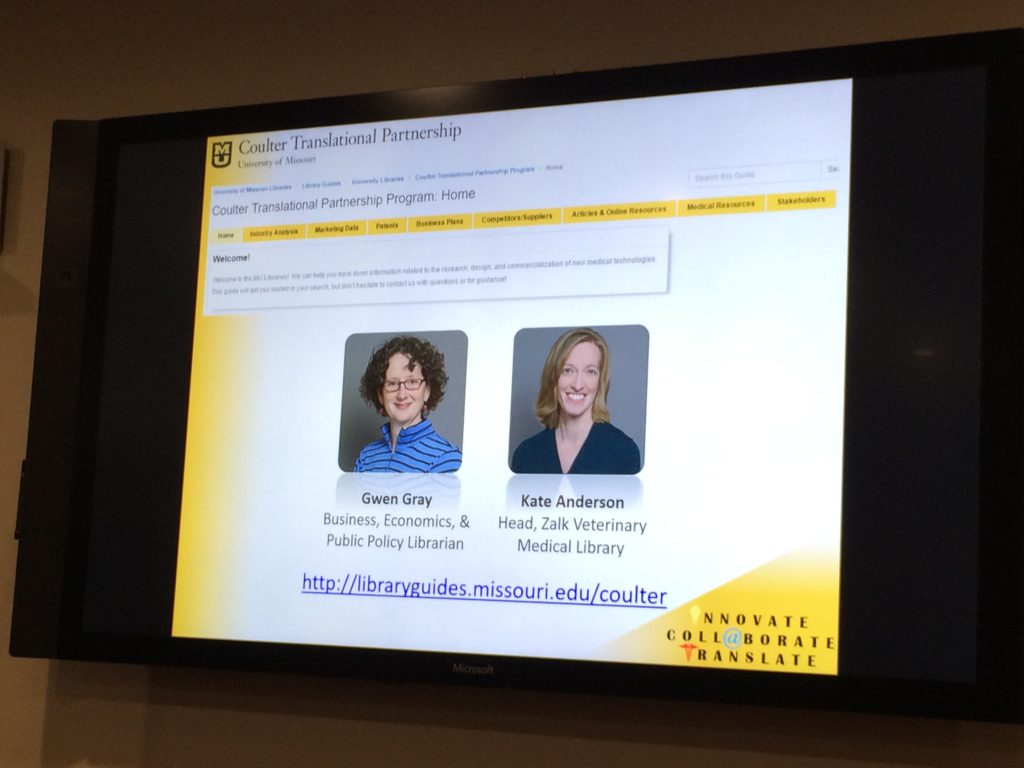Jefferson Bailey is the director of Web Archiving Programs at the Internet Archive.
Read more at the Reynolds Journalism Institute blog: Jefferson Bailey: Lightning rounds: Supporting Data-Driven Research using News-Related Web Archives
Resources and Services
Mark Graham: Lightning rounds: Archiving news at the Internet Archive
Mark Graham is currently Director of the Wayback Machine at the Internet Archive, responsible for capturing, preserving and helping people discover and use, more than 1 billion web captures each week.
Read more at the Reynolds Journalism Institute blog: Mark Graham: Lightning rounds: Archiving news at the Internet Archive
Edward McCain and Ginny Steele: Welcome
Edward McCain is the digital curator of journalism at the Donald W. Reynolds Journalism Institute and the University of Missouri Libraries. Ginny Steel is a university librarian at UCLA.
Read more at the Reynolds Journalism Institute blog: Edward McCain and Ginny Steele: Welcome
Finals Survival Guide
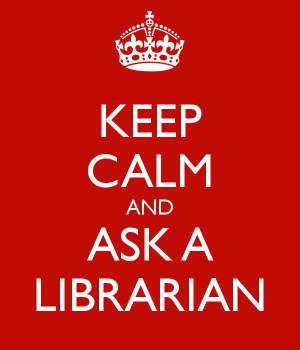
It's that time in the semester again: FINALS.
Never fear! From research help to stress relieving activities, Mizzou Libraries have your back! Check out our Finals Survival Guide with details on all the end of semester resources that we have to offer.
And remember, when in doubt, Ask a Librarian!
Cycle of Success: Gwen Gray, Kate Anderson, and Supporting Entrepreneurship
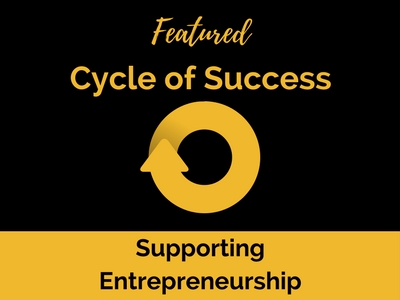

Gwen Gray, Business, Economics & Public Poloicy Librarian, spearheads the libraries’ involvement with a variety of programs. Through her work with Entrepreneurship Alliance students, Gwen promotes the libraries as an integral resource for teaching and research. Greg Bier, Director of the Entrepreneurship Alliance, indicates her positive impact. “I just wanted to thank you for working with my Entrepreneurship Alliance students Tuesday,” Bier said. “I think it is very important that they understand the tools right at their fingertips on campus. Unfortunately, not many of them think of Ellis as one of them. I also think you change their opinions. Thanks for being a great help!”
Gwen strives to integrate library resources and services into MU’s entrepreneurship programs. One such program is the Biodesign & Innovation Program. Through her work, Gwen assists Biodesign Fellows as they seek out information and research. The Fellows she works with speak highly of the assistance she provides. “Our Biodesign Filtering presentation tonight was a great success,” one Fellow said.

Kate Anderson is the head of the Zalk Vetinary Medical Library and works with Gwen on a number of projects, including that Biodesign Program and the Coulter Translational Partnership. In Coulter boot camps, teams of physicans and engineeers build their case for funding from the Coulter Foundation. The goal of the Coulter Foundation is to accelerate the translation of biomedical innovations into products the improve patient care.
Because entrepreneurs need expertise and resources from multiple disciplines, Gwen and Kate collaborate extensively. The biodesign fellows and the boot camp participants often acknowledge Gwen’s and Kate’s teamwork.
- “I wanted to say a big ‘THANK YOU!’ to both of you for getting us all the information we needed in such a short period of time. You both made the success of [our] presentation possible!”
- “Thank you so much for checking in with us. It really means a lot to know we have your support!"
-
“Many thanks for your kind help in award. Really appreciate [Gwen’s] help and Kate’s timely support.”
This active collaboration enables the Libraries to have a positive impact on the biotech entrepreneurial climate not only on campus but in the greater mid-Missouri region as well.
If you would like to submit your own success story about how the libraries have helped your research and/or work, please use the Cycle of Success form.
Staff Picks Book Display
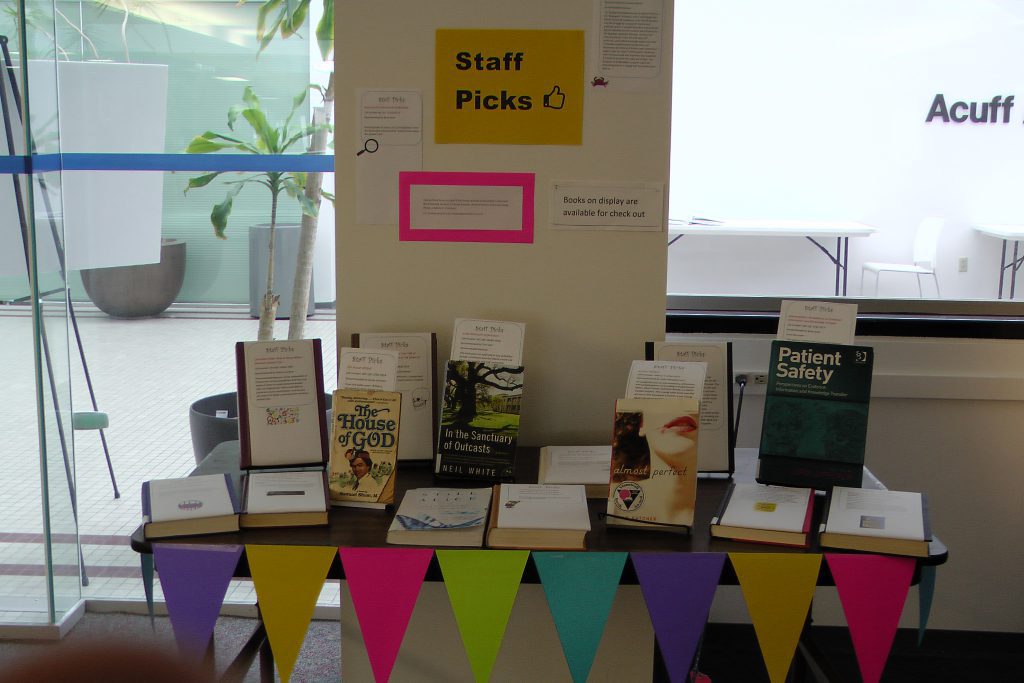
It’s Friday and you may be looking for a way to relax and unwind this weekend. Head on over to the Health Sciences Library and check out a book from our Staff Picks display! On a variety of topics, all health related of course :), our books on display have all been previewed and recommended by your helpful library staff. Enjoy!
What Patients Say, What Doctors Hear: What Doctors Say, What Patients Hear
Calculating Risks: How to Know when Numbers Deceive You
Fever Season: the Story of a Terrifying Epidemic and the People Who Saved a City
The Emperor of All Maladies: a Biography of Cancer
Gulp: Adventures on the Alimentary Canal
Breakthrough: Elizabeth Hughes, the Discovery of Insulin, and the Making of a Medical Miracle
An Anthropologist on Mars: Seven Paradoxical Tales
Brain on Fire: My Month of Madness
Patient Safety: Perspectives on Evidence, Information, and Knowledge Transfer
Knife Man: Blood, Body Snatching, and the Birth of Modern Surgery
Dr. Mutter's Marvels: A True Tale of Intrigue and Innovation at the Dawn of Modern Medicine
Reference Display: Dictionaries

Head over to the Reference Desk at Ellis Library for a weekly display of reference or other non-circulating materials.
This week, we have dictionaries on display. Sure, dictionaries are great for finding the meaning, spelling, and pronunciation of words, but stop by to look up colloquialisms, words that originate from names, collective nouns, cliches, and more. These specialized dictionaries will give you new insight into the words we use every day.
To find out more about dictionary resources, go to this guide.
Unbound Book Festival Display
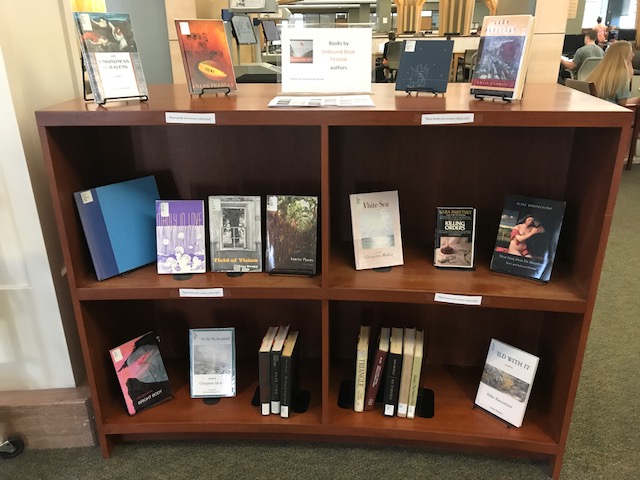
Stop by Ellis Library to take a look at books by authors visiting Columbia for the Unbound Book Festival on April 22nd. MU is the presenting sponsor of this free local literary festival that features authors of fiction, nonfiction, poetry, and children's books. The display is near the Reference Desk, and all books on display are available for check out. Try a mystery by Sara Paretsky, essays by Lisa Knopp, poems by Meg Kearney, or a picture book illustrated by Jan Spivey Gilchrist.
Lights, Camera, Action!
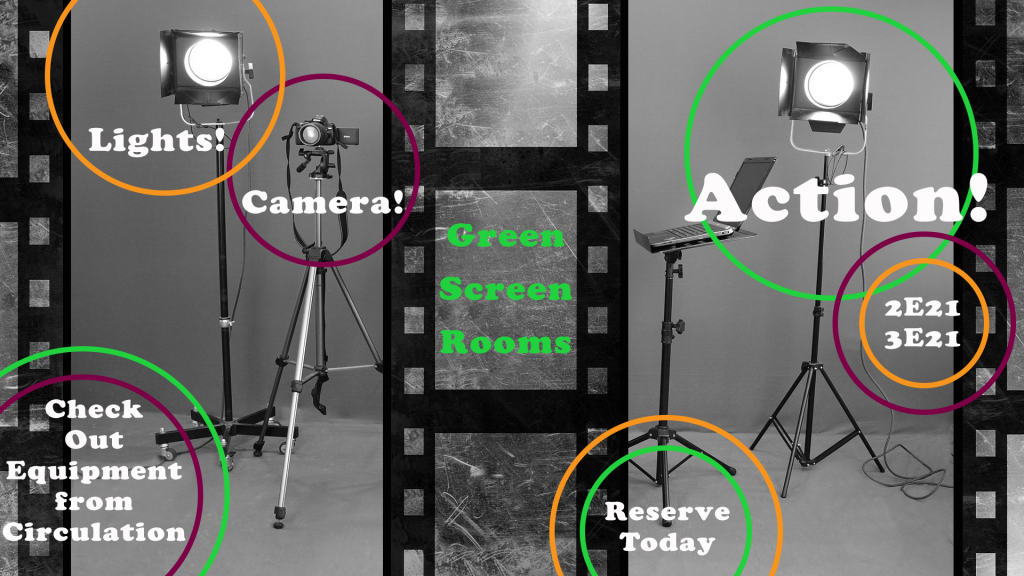
Green Screen Rooms are now available in 2E21 and 3E21 located on the 2nd and 3rd floors of Ellis Library. To reserve these rooms for up to 2 hours, go online to the room reservation calendar on the library’s homepage.
You can use the green screen wall to replace the background of your photography and video projects with different settings. Then, use Adobe Photoshop or Premiere on one of the Mac computers in the Digital Media Commons Lab to edit your work.
Equipment is available for checkout at the Circulation Desk with a student ID. We have cameras, camcorders, tripods, microphones, portable green/blue screens, and many other items that will help you complete your project.
Go to https://libraryguides.missouri.edu/DigitalMediaCommons to learn more!
Featured Article from Medicine and Related Fields: April 2017

Each month we feature one recent article from a School of Medicine author with the highest journal impact factor.
This month’s article, entitled SENP1 regulates PTEN stability to dictate prostate cancer development , was co-authored in part by Dr. Feng-Ming Yang, Dr. Joan Ritho, and Dr. Edward T.H. Yeh of the Department of Internal Medicine. The article was published in Oncotarget (impact factor 5.008 in 2015).
For the list of University of Missouri publications in medicine and related fields published this month, view results here (in Firefox or Chrome).
